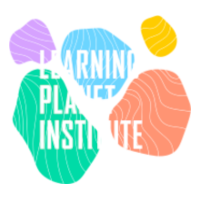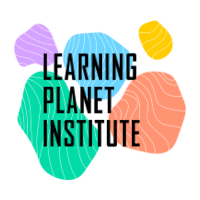On July 22, 2024, the UNESCO Chair on Learning Sciences at the Learning Planet Institute hosted a vibrant online roundtable titled “Co-Designing the Future of Learning with Youth.” With 180 participants in attendance, this interactive session provided a platform for education leaders and youth to discuss how to collaboratively shape the future of education with youth.

Setting the Stage for Co-Design
We were honored to welcome a great panel of educational leaders including: Manja Klemencic – Associate Senior Lecturer on Sociology and General Education, Harvard University and Editor of Bloomsbury Handbook of Student Politics and Representation in Higher Education -, Michael Winter – Co-President of oikos International, Arissa Roy – Co-chair Healthy and Safe Spaces, Schools & Self, UNESCO SDG 4 Youth and Students Network, finalists from the Learning Planet Youth Design Challenge, Edward Stevenette – team member of the LearningPlanet Alliance at the Learning Planet Institute -, and François Taddei – Founder and President of the Learning Planet Institute and Unesco Chair in Learning Sciences.
Participants first shared their thoughts on what co-designing learning with youth means to them, resulting in a word cloud that highlighted key themes such as empowerment, innovation, and inclusion.

The session then focused on three core themes through a series of case studies: governance, curriculum design, and advocacy:
Governance: Empowering Student Leaders
Manja Klemenčič, Associate Senior Lecturer on Sociology and General Education at Harvard University and Editor of the Bloomsbury Handbook of Student Politics and Representation in Higher Education, emphasized the importance of empowering student leaders:
Co-designing with students meant empowerment of the student leaders. It meant breaking barriers between academics, scholars, and practitioners in student representation and governance. It affirmed that student leaders have valuable knowledge and experiences that can inform us and educate us, creating a powerful learning community.

Download the Bloomsbury Handbook for free
Curriculum: Embracing Minimalism and Engagement
Michael Winter, Co-President of Oikos International, spoke passionately about the need for a minimalist approach to curriculum design:
Co-designing the future of learning requires more than working on details. It requires opening up spaces, becoming curriculum minimalists, and finding room for arts and projects. Educators must go out of their offices, see the students, and engage with them actively.
See Michael Winter’s presentation here
Francois Taddei, Founder and President of the Learning Planet Institute, shared a long-term perspective on co-design:
We started 20 years ago with a few students and have doubled in size many times over the last 20 years. Co-designing physical spaces, learning environments, curricula, and diplomas with the student perspective in mind has been key. Listening to the frame and evolving it with student input to maximize flourishing of students and projects has been our approach.
Advocacy: Harnessing the Power of Storytelling

Arissa Roy, Co-chair Healthy and Safe Spaces, Schools & Self, UNESCO SDG 4 Youth and Students Network, highlighted storytelling as a crucial tool in co-design:
As someone who participated in creating the UN Youth Declaration as a young person, I believe storytelling is key. Stories are remembered up to 22 times more than facts alone, according to Stanford University. Sharing our stories is vital in educational advocacy.
Next Steps
As we look back on this session, we remain committed to addressing access barriers and exploring avenues for broader youth participation in international educational decisions.
The Learning Planet Institute and its community will continue to equip young people with essential tools and support to transform their innovative ideas into impactful solutions. With dedicated mentors and a robust framework, we are committed to fostering growth of youth ideas for education
1. Keeping the case studies coming
We need to continue to explore case studies for effectively codesigning learning with youth, and we need to hear from students directly. We invite educational institutions, policymakers, and international bodies to join us in this journey. By genuinely engaging with and listening and designing alongside young people, we can transform the educational landscape to be more inclusive and adapted to local and global challenges.
2. Join the Learning Planet Youth Design Challenge
This September, we will launch the second edition of the Learning Planet Youth Design Challenge, around the UN General Assembly Summit for the Future in New York. This annual global challenge encourages students aged 15-26 to pitch learning programs for flourishing, engaged and sustainable universities of the future.
Daniel Persky, 14, USA, Youth Design Challenge Finalist, shared:
It’s very important to empower youth with knowledge and tools to contribute to our future. That’s part of what I’m trying to do with my own project under the university design challenge.
Pearl Perumal, 26, South Africa, winner of the Inaugural Youth Design Challenge, added:
The Youth Design Challenge is transformational. It provides a space and platform for youth to develop self-awareness, planetary awareness, and sustainable projects that address current and future generations.
For more information on how join the adventure: visit our Learning Planet Youth Design Challenge website
For more exciting news about our activities and our community, subscribe to the Learning Planet Institute’s newsletter and/or follow us on our social media (LinkedIn, Instagram, Facebook, X and YouTube).
Cette publication s’inscrit dans le cadre de la Chaire UNESCO « Sciences de l’apprendre », établie entre l’UNESCO et Université Paris Cité, en partenariat avec le Learning Planet Institute. Les idées et opinions exprimées dans cette publication sont celles des auteurs. Elles ne représentent pas nécessairement les vues de l’UNESCO et n’engagent en rien l’Organisation.







